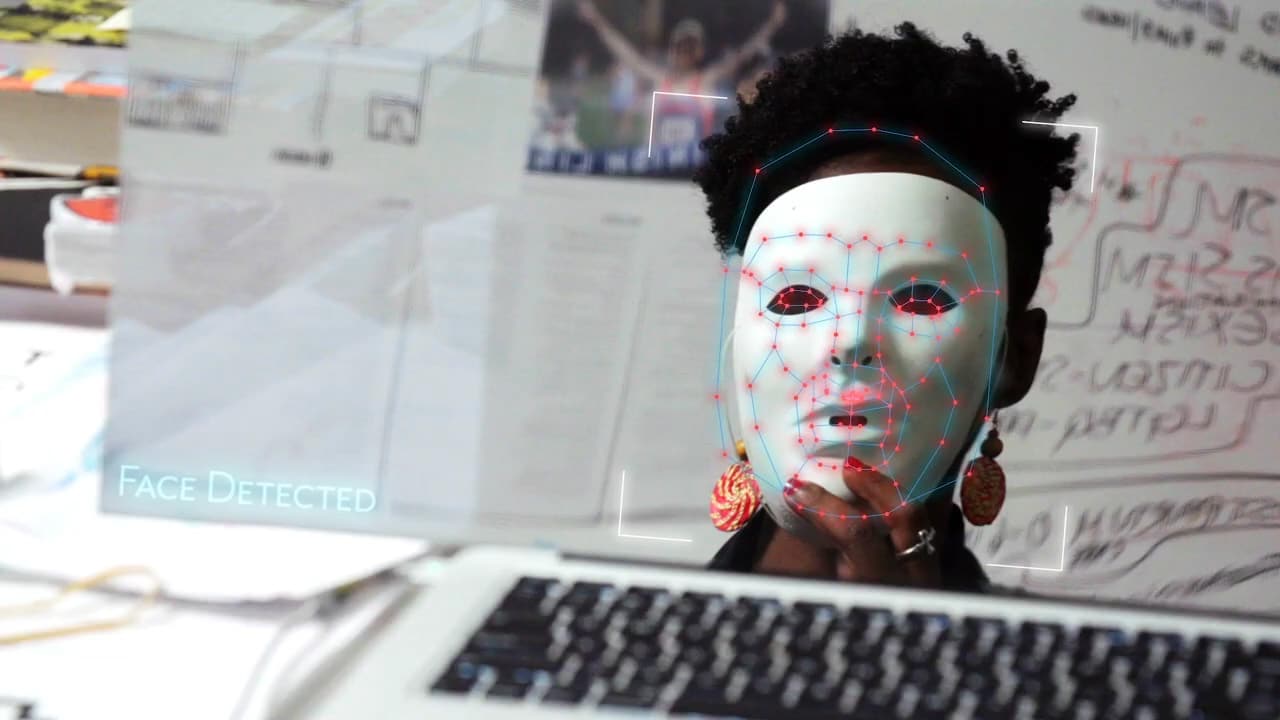On Monday October 5, Cinema Politica Concordia opened an all-digital season with a discussion with director of the critically-acclaimed film CODED BIAS. The discussion and screening was co-organized with Dr. Alex Ketchum of the Feminist and Accessible Publishing, Communications, and Technologies Speaker and Workshop Series.
Reflecting on her motivation to explore how disruptive technologies, such as artificial intelligence (AI), impact issues of equality, director Shalini Kantayya emphasized the invasive role of AI in surveillance technologies. Algorithms acts as gatekeepers despite, as shown in the film, not being vetted for racial and gender discrimination. As MIT Media Lab researcher Joy Buolamwini discovers in the film, most facial-recognition software does not accurately identify darker-skinned faces and the faces of women. This is contrary to the claims of algorithmic neutrality that private corporations and government contractors use to sell their software.
The scope of surveillance is broad, dominated by tech giants like Google, Facebook and Amazon, each collecting data about personal preferences and behaviors to inform their predictive software. Surveillance technology powered by AI is also deeply integrated into the border control and immigration systems of ICE and CBSA. As Kantayya described, much of this technology is deployed in secret, without rigorous regulation around the algorithms or use of facial recognition technology. Describing the growing ubiquity of AI-based surveillance in policing, Kantayya refers to this as “the new stop and frisk”.
This has created what Kantayya describes as “blind-spots in legislation”, referring to the lax regulation around surveillance technology in the United States. Seeing the urgency in adopting protections against discrimination, Kantayya explains that data and privacy rights must be seen as human rights: “We’re only as safe as the most vulnerable among us.”
CODED BIAS not only addresses the questions around AI policy in the United States, but should resonate with Canadian audiences as well. Canadian legislation around AI regulation and data privacy rights are also notoriously lax, with few preventative and accountability mechanisms to address algorithmic discrimination. Kantayya’s film ultimately leaves viewers with an incentive to treat algorithmic discrimination as an urgent issue of civil rights. By connecting the discoveries of the researches featured in CODED BIAS to tangible policy change, Kantayya’s film serves as a catalyst for crucial conversations in the era of artificial intelligence. “Intelligence without empathy, without ethics, is not intelligence,” she concludes. “Our biggest enemy is not Amazon … it is our own apathy.”
Watch the Q&A above, or click here to view.




